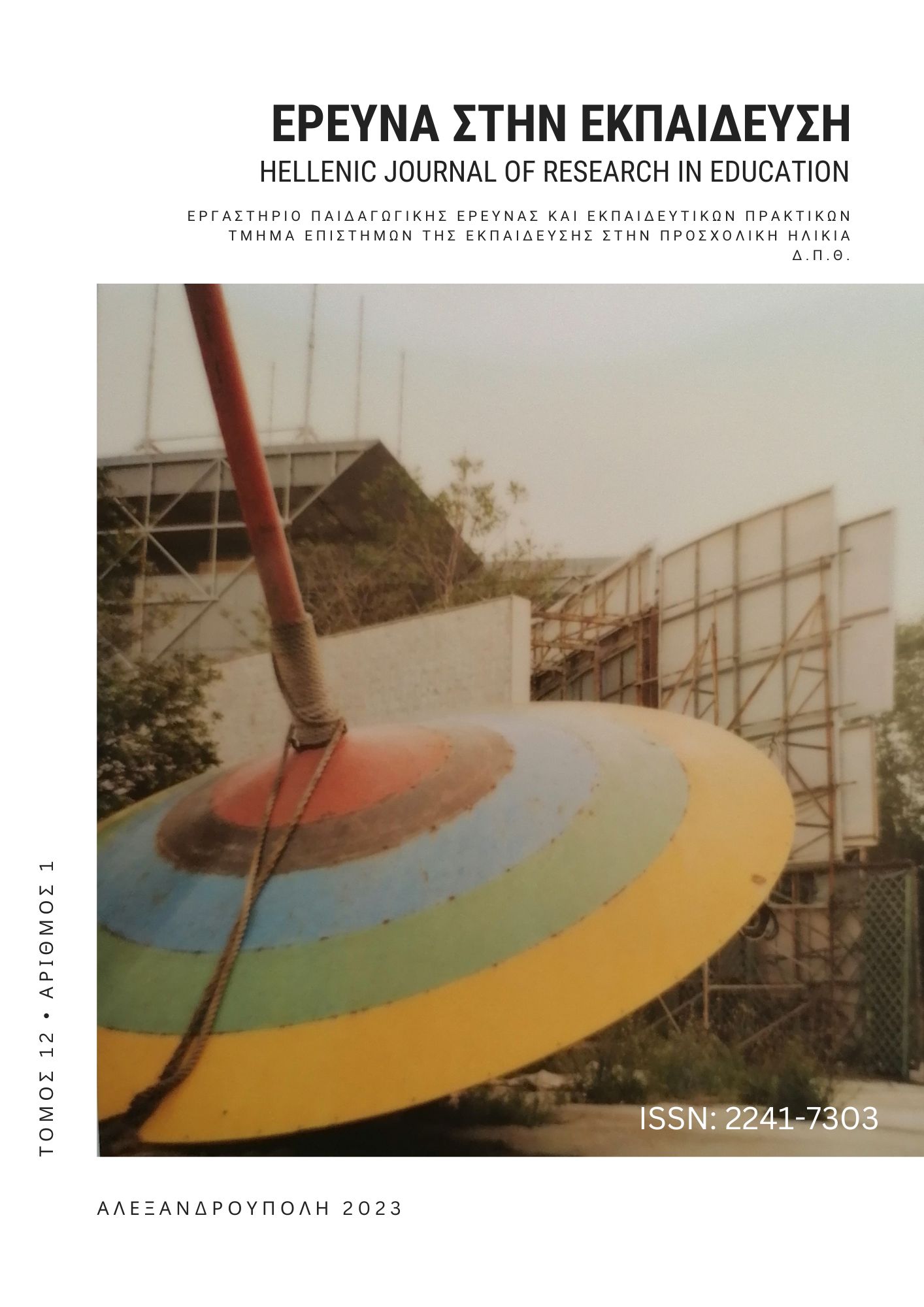Intervention in school practices of producing written student texts data from a collaborative action research project

Abstract
The present research aims to investigate the introduction, development and evaluation of interactive and sociocritical learning and teaching practices for the production and, especially, the revision of students' written discourse in a classroom of a greek public urban primary school, in the context of an annual ethnographic participatory action research, which aims to promote students' critical literacy. The research draws its theoretical foundation from the socio-cultural theories of writing and literacy, which it combines with the critical linguistic-pedagogical approach of the writers' workshop and the more specific proposal for a whole-class revision of written student texts. In collecting and analyzing its data, the research follows the ethnographic and sociolinguistic tradition, and utilizes a variety of techniques and methods for a thorough study of classroom literacy as a social and cultural process. Findings from the ethnographic mapping of classroom literacy events, from the interactive micro-analysis of discourse and practices of writing, and from the thematic analysis of the teacher's and children's written reflections and interviews, highlight a dynamic and complex trajectory of the emerging classroom-discourse community from decontextualized literacy practices to social, interactive and reflective ones. The article identifies the factors that explain and account for the course of this shift based on the theoretical framework of the research, and discusses the implications of these findings (a) for research and (b) for the teaching of writing as an interactive and social practice with specific implications for the development of students' literate identities in contemporary schools.
Article Details
- How to Cite
-
Kekia, M. A. (2023). Intervention in school practices of producing written student texts: data from a collaborative action research project. Hellenic Journal of Research in Education, 12(1), 57–77. https://doi.org/10.12681/hjre.32527
- Issue
- Vol. 12 No. 1 (2023)
- Section
- Articles

This work is licensed under a Creative Commons Attribution-NonCommercial-ShareAlike 4.0 International License.
Authors who publish with this journal agree to the following terms:
- Authors retain copyright and grant the journal right of first publication with the work simultaneously licensed under a CC-BY-NC-SA that allows others to share the work with an acknowledgement of the work's authorship and initial publication in this journal.
- Authors are able to enter into separate, additional contractual arrangements for the non-exclusive distribution of the journal's published version of the work (e.g. post it to an institutional repository or publish it in a book), with an acknowledgement of its initial publication in this journal.
- Authors are permitted and encouraged to post their work online (preferably in institutional repositories or on their website) prior to and during the submission process, as it can lead to productive exchanges, as well as earlier and greater citation of published work (See The Effect of Open Access).


